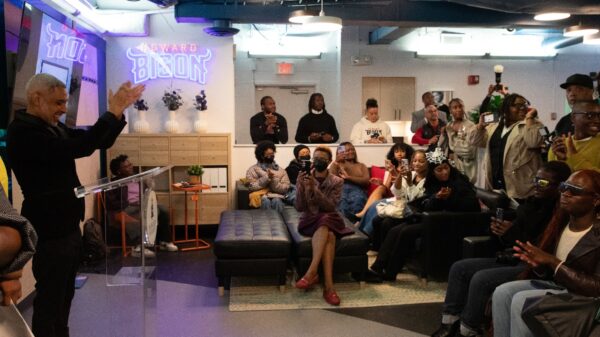By: Christian Brewster, Staff Writer

At its surface, Sam Levinson’s new Netflix film, “Malcolm and Marie”, seems like a confined story about love and how a romantic relationship can be emotionally straining. Instead, the film uses its characters, Malcolm, played by John David Washington, and Marie, played by Zendaya Coleman, as vessels to provide Levinson’s criticism of white guilt in the film industry. Through the eyes of both lovers, Levinson causes us to question whether or not movies need to have an underlying social or political message to be impactful.
The film opens with the couple coming home after the premiere of Malcolm’s new film. As he dances through their shared home, elated at the crowd’s reaction and the interviews he had with film critics showering him with praise, Marie begins making him dinner. She is visibly upset as she moves throughout the kitchen. Soon, it becomes clear that Malcolm is egotistical and Marie is overly sarcastic — two clashing personalities that lead to nearly two hours of fighting.
The topics of their fights range from infidelity to misogyny, but their arguments always go back to filmmaking, and the lovers feud over the creation and reception of Malcolm’s latest film.
Although the initial reaction to his film is positive, Malcolm indulges in long, raging monologues about how white people consume Black created media.
“The white guy from Variety loved it. The white guy from IndieWire loved it. The white woman from the LA Times really loved it… It’s not a film about race. No, it’s about shame.” Malcolm insists that he didn’t intend to make a film about systemic racism and that white viewers use Black media as a way to feel better about themselves, or to use their media consumption as a way to prove they are “woke.”
This leads Malcolm to his main point, “Cinema doesn’t need to have a message. It needs to have a heart and electricity.” This is the statement that becomes the root of their argument; the lack of, as Marie calls it, mystery and authenticity.
In the context of their relationship, she tells Malcolm that he is inauthentic and that he doesn’t value the mystery in a romantic relationship. Malcolm, in a way, represents films themselves, while Marie represents the general audience. She questions his intentions, therefore questioning the film’s intentions. She questions his authenticity as a partner, therefore questioning his film’s authenticity. She realizes that she values mystery and that he does not.
To Marie, the mystery in a relationship is arguably a necessity. Not knowing what might come next, what lies ahead for a couple, is what makes it interesting. Malcolm doesn’t appreciate that enough, and he doesn’t appreciate her, undermining her intelligence, the same way a bad film undermines the audience’s intelligence.
Malcolm’s character is a bad film. Though he directed a movie that received critical acclaim, he doesn’t respect the very critics who support it because of the race issue. He is seen as the next Spike Lee or Barry Jenkins, but he doesn’t want to just be seen as the next great Black director — he longs to be seen as the next great director. He knows he is not.
His problem, however, doesn’t truly lie with the critics, his problem is that he lacks the very “electricity” he says makes a great film. Marie tells him this, calling him “mediocre,” a line that hurts him more than any of the insults she threw his way. It hurts him because it’s true, the film may have been mediocre, but it received praise nonetheless because it was seen as a critique of systemic racism by the very perpetrators of systemic racism. How else do you tell people of color you don’t see color?
Marie is the protagonist. Her reasons for being angry are not driven by ego, they’re driven by a genuine frustration for being underappreciated by a man who claims to do so, but shows no effort beyond his professional duties. She sees him as a fraud not because he didn’t intend to have a political message, but because he lacks the truth to make a truly impactful film, and he lacks the truth to be a good partner.
The overall execution of “Malcolm and Marie” has disappointed quite a few of its viewers. The script was written in six days and the film shot in two weeks. It is clear that Levinson’s ideas, although interesting, needed to be cut down and revised — or at the very least delivered in a way that doesn’t require the audience to be screamed at for nearly two hours.
Criticism of Hollywood has been done before, an introspective look into a broken relationship has been done before, and they’ve certainly been done better. Levinson’s take on these subjects lacks subtlety and often feels like a student film’s version of Aaron Sorkin’s dialogue style, but the topics themselves still hold some conversational value.
Films don’t need a political message to make a lasting impact. They do need “a heart and electricity,” the problem is, Malcolm doesn’t have either.









